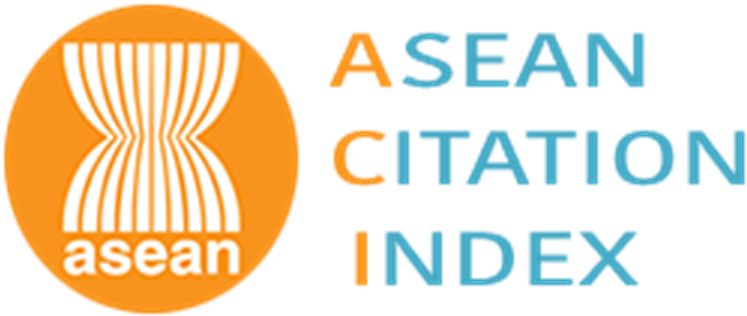ระบบผู้เชี่ยวชาญสำหรับการเลือกวิธีพัฒนาสมรรถภาพทางกายสำหรับประชากรไทยในวัยสูงอายุบนฐานออนโทโลจี
Expert System for Selecting Physical Fitness Enhancing Methods for Elderly Thai Citizens Based on Ontology
Abstract
ในการเลือกวิธีพัฒนาสมรรถภาพทางกายที่เหมาะสมสำหรับผู้สูงอายุ ต้องได้รับคำแนะนำจากผู้เชี่ยวชาญด้านสุขภาพอย่างต่อเนื่องตามการเปลี่ยนแปลงของสุขภาพ แต่ผู้สูงอายุรวมทั้งผู้ดูแลผู้สูงอายุจำนวนมากขาดความพร้อมในการเข้าถึงบริการสุขภาพดังกล่าว งานวิจัยนี้จึงเสนอระบบผู้เชี่ยวชาญบนพื้นฐานออนโทโลจีสำหรับการเลือกวิธีพัฒนาสมรรถภาพทางกายสำหรับประชากรไทยในวัยสูงอายุ กระบวนการพัฒนาออนโทโลจีเป็นไปตามหลักวิศวกรรมออนโทโลจีโดยมีการรวบรวมวิธีการออกกำลังกายจากความเห็นของผู้เชี่ยวชาญด้านสุขภาพด้วยเทคนิคเดลฟาย เกณฑ์มาตรฐานสมรรถภาพทางกายสำหรับผู้สูงวัยไทย และข้อมูลผลการสำรวจพฤติกรรมการเล่นกีฬาหรือออกกำลังกายของประชากรไทย ออนโทโลจีที่ได้ประกอบด้วย 197 คลาส โดยมีคลาสหลักได้แก่ คลาสการออกกำลังกาย คลาสสถานที่ออกกำลังกาย คลาสผู้สูงอายุ คลาสช่วงอายุ และคลาสช่วงเวลา การพัฒนาระบบผู้เชี่ยวชาญเพื่อแนะนำวิธีการพัฒนาสมรรถภาพทางกายอาศัยหลักวิศวกรรมออนโทโลจีเช่นกันโดยมีการใช้ข้อมูลสมรรถภาพและพฤติกรรมที่นำเข้าโดยผู้ใช้ ระบบประกอบไปด้วยฐานความรู้ออนโทโลจีข้างต้นที่ถูกสร้างในรูปแบบซีเอ็สวี และฐานกฎการตัดสินใจที่ประกอบด้วย 651 กฎการตัดสินใจ ผลการวิจัยพบว่าระบบมีค่าเอฟ-เมเชอร์เท่ากับ 0.93 ความพึงพอใจของผู้ดูแลผู้สูงอายุ 160 คนที่มีต่อระบบ อยู่ในระดับดีมากโดยค่าเฉลี่ยเท่ากับ 4.78 ส่วนความพึงพอใจของผู้สูงอายุจำนวน 152 คน อยู่ในระดับที่แตกต่างกันกล่าวคือ ช่วงอายุ 60 ถึง 64 ปีความพึงพอใจอยู่ในระดับดี ค่าเฉลี่ยเท่ากับ 4.34 และระดับความพึงพอใจลดลงไปตามช่วงอายุที่มาก โดยช่วงอายุ 85 ถึง 89 ปี มีระดับความพึงพอใจอยู่ในระดับดี ค่าเฉลี่ยเท่ากับ 3.39 เนื่องจากขาดทักษะในการใช้อุปกรณ์คอมพิวเตอร์
To select proper methods for physical fitness enhancement for the elderly, ongoing advice from healthcare professionals is needed according to older adults' health-related changes. Often, seniors and senior care providers are not ready to access such health services. Therefore, this research proposes an ontology-based expert system for selecting physical fitness enhancing methods for Thailand's elderly population. By following an ontology engineering principle, an ontology was developed to represent the body of knowledge of exercise for elders that was collected from health experts via Delphi technique, physical-fitness standard criteria for Thai elders, and the survey results concerning sport playing or exercising behaviors among the Thais. The resulting ontology comprised 197 classes including the following main classes: Exercise, Exercise place, the Eldery, Age-range, and Time-period. Also based on the ontology engineering principle, the proposed expert system was developed to input the physical-fitness and behavior data of users. The system comprises the ontology, which was implemented in the form of CSV, and a rule base consisting of 651 decision-making rules. In system evaluation, the proposed system has F-measure of 0.93. The 160 elder caretakers were satisfied with the system at a very good level (M= 4.78 out of 5.00). The 152 elderly respondents revealed their satisfaction at different levels. The 60-to-64 years old group reported a high level of satisfaction (M= 4.34). The satisfaction level declined with greater age. The 85-to-89-years-old respondent group showed a relatively moderate rating (M= 3.39) due to insufficient computer skills.
Keywords
[1] A. Anantakul. (2018, December). Aged Society… Challenges Thailand. [Online] (in Thai). Available: http://www.royin.go.th/?p=17718
[2] Health 6 Center, Exercise in the Elderly. Bangkok, Thailand: Department of Health, Ministry of Public Health, Office of the Health Promotion Foundation (Thai Health Promotion Foundation), 2018 (in Thai).
[3] A.Sukwatjanee, “Exercise for elders,” Srinakharinwirot Research and Development (Journal of Humanities and Social Sciences), vol. 4, no. 8, pp. 18–24, 2012 (in Thai).
[4] Health–Related Physical Fitness. In Tests and Criteria of Physical Fitness for the Elderly 60- 89 Years, Department of Physical Education, Thailand, 2013, pp. 3–34 (in Thai).
[5] Sports Research and Development Group, Research Report on the Organizing Sport for the Elderly Thailand, Ministry of Tourism and Sports, Department of Physical Education, Department of Physical Education, 2013, pp. 42–49 (in Thai).
[6] W. Tapin, “Bio-Psycho-Social factors associated with geriatric health care behavior by geriatric caregivers,” M.Ed. thesis, Faculty of Humanities, Srinakharinwirot University, Bangkok, 2010 (in Thai).
[7] A. Sornketstrin, P. Thongpetch, A. Khancham, A. Watcharawiwat, N. Rattananukul, J. Sukree, and S. Chobtrong, “Factors affecting health promotion behaviors and health service use behaviors of people under the universal health coverage,” Health Systems Research Institute (HSRI), August 2004 (in Thai).
[8] P. J .F. Lucas and L. C. van der Gaag, Principles of Expert System, Amsterdam: Addison-Wesley, 1991, pp. 5–9.
[9] R. M. Stair and G. W. Reynolds, Principles of Information Systems, Cengage Learning, 2010, pp. 400–474.
[10] T. Gruber, “Ontology of folksonomy: A mash-up of apples and oranges,” International Journal on Semantic Web and Information Systems, vol. 3, no. 1, pp.1–11, 2007.
[11] Y. Sure, S. Staab, and R. Studer, Handbook on Ontologies. Springer-Verlag Berlin Heidelberg, 2009, pp. 20–358, pp. 712–796.
[12] M. Buranarach, N. Thatphithakkul, A. Kawtrakul, S. Wongrochananan, N. Kulnawan, and W. Jiamjarasrangsi, “Development of service systems to support diabetes patient selfmanagement using a personalized service framework,” in 2011 Annual SRII Global Conference, 2011, pp. 363-370.
[13] S. Napor and S. Sitthisarn, “Development of ontology for the personalized semantic recommender system to promote gout patient heath care,” in National Academic Conferences Faculty of Humanities and Social Sciences, Thaksin University, 2020, pp. 231–238 (in Thai).
[14] P. Nilaphruek and K. Chansathien, “A recommender system for weight loss activity applying ontological knowledge-based,” National Academic Conferences Faculty of Humanities and Social Sciences, Rajamongkol Research, vol. 11, no. 1, pp. 8–16, 2017 (in Thai).
[15] S. Sivilai and C. Snae, “Surveillance system for the elderly health plans with ontology,” Journal for Community Development (Humanities and Social Sciences), vol. 4, no. 2, pp. 83–97, 2011 (in Thai).
[16] M. Kliangkhlao, D. Kochakornjarupong, and V. Boonchoom, “An ontology development for personal health adaptation related to climate change,” Thaksin University Journal (Information Technology Program), vol. 18, no. 1, pp. 23–31, 2015 (in Thai).
[17] S. Mungsing and R. Kaewprasert, “Initial disease name prediction from blood test results using an adaptive neuro-fuzzy inference system,” Journal of the Thai Medical Informatics Association, vol. 1, no. 1, pp. 1–11, 2016 (in Thai).
[18] N. Chamnongsri, “Ontology development for Thai herbal medicine recorded in ancient documents,” Journal of Information Science, vol. 37, no. 4, pp. 17–43, 2019 (in Thai).
[19] C. Prompukdee, M. Buranarach, and J. Rungrattanaubol, “Ontology-based semantic search system for Thai traditional medicine,” Social Science Journal, vol. 4, no. 2, pp. 61–70, 2015 (in Thai).
[20] T. McMillan, “The Delphi technique,” Annual meeting of California Junior, Monterrey California, May 3, 1971.
[21] National Statistical Office, Bureau of Social Statistics, Behavior for Playing Sports or Exercising in Survey on Population Behavior in Playing Sport or Physical Exercise and Mental Health, National Statistical Office, Bangkok, 2011, pp. 1–4 (in Thai).
[22] K. Kozaki, E. Sunagawa, and R. Mizoguchi, “Hozo: An ontology development environmenttreatment of role concept and dependency management,” Knowledge Engineering and Knowledge Management: Ontologies and the Semantic Web Lecture Notes in Computer Science, 2002, pp. 155–163.
[23] M. Buranarach, T. Rattanasawad, and T. Ruangrajitpakorn, “Ontology-based framework to support recommendation rule management using spreadsheet,” Tenth International Conference on Knowledge, Information and Creativity Support Systems, 2015, pp. 77–86. (in Thai).
DOI: 10.14416/j.kmutnb.2022.08.003
ISSN: 2985-2145





